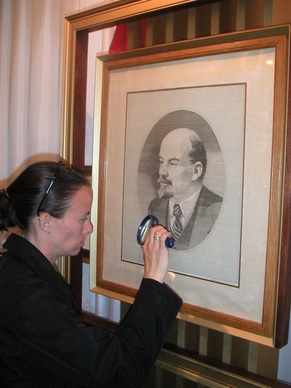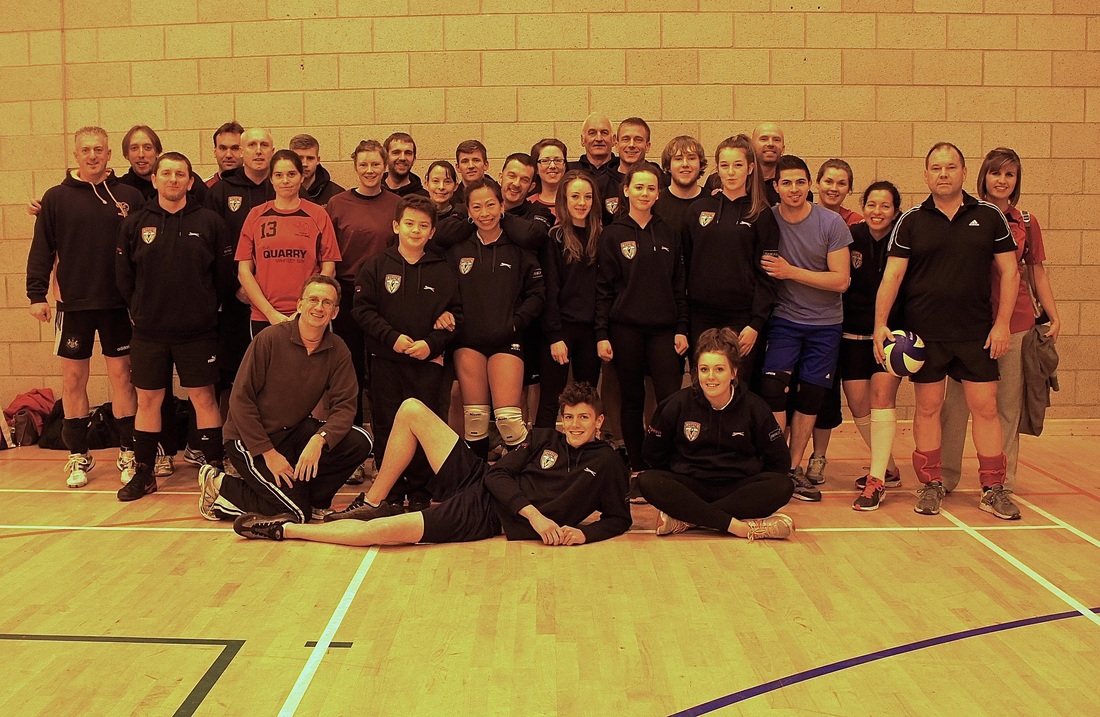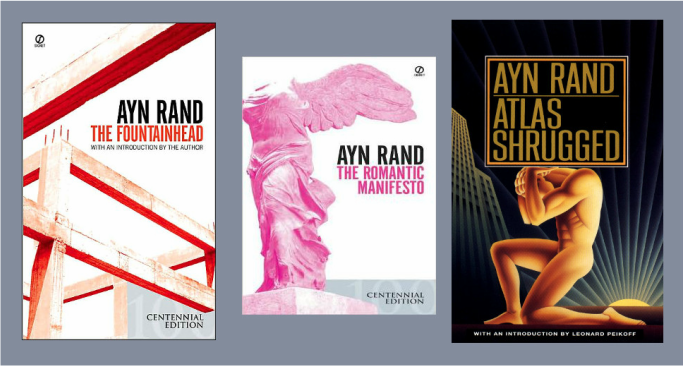
When I was first in college, I wanted to get a minor in philosophy. There were only just enough free electives in my undergraduate engineering program to do it if I loaded up on all the classes I could fit into my schedule, but I was determined. I had read Plato's Republic and bits of Durant's The Story of Philosophy during the summer before my freshman year, and I completed a Practical Logic course and a Medieval Philosophy course in my first year (though only just barely on that last one), which filled in my basic requirements. I was really excited then to finally qualify for a more senior level course in contemporary analytical philosophy. I remember thinking about how many holes that I, as an uneducated kid, had poked in the theories of Plato and Augustine and Anselm and Aquinas, and I couldn't wait to see what the field had figured out over the 1,000 years since that time. I don't remember exactly what I found in that course, but it must have been something like this:
How are we to adjudicate among rival ontologies? Certainly the answer is not provided by the semantical formula "To be is to be the value of a variable"; this formula serves rather, conversely, in testing the conformity of a given remark or doctrine to a prior ontological standard. —W.V.O. Quine
I dropped the class after a few weeks, abandoned my plans for a minor in philosophy, and began taking other electives from a wide range of fields. What I didn't know then (but have since discovered on my own) was just how much philosophy had turned in on itself once the is-ought stumbling block that Hume had outlined became accepted as unbridgeable. With facts and values separated, science took over the discovery of facts, and artists and religions kept up their endless debates on values. These so called Two Cultures of C.P. Snow came to be watched from the sideline by a philosophy that had once ruled them both. I wrote about the creation of this seat on the bench when I chronicled the formulation of Analytic Philosophy by Bertrand Russell and Ludwig Wittgenstein. Now it's time for a quick look into what that school has produced. Certainly it has given us a more precise understanding of words, logic, and argumentation, but that to me is merely a better magnifying glass in the picture above—a useful instrument for reading, but not the great content of reading itself. In this series on the survival of the fittest philosophers, the next two entrants are probably the high points of analytical philosophy, and since they opposed one another with their subset schools of thought, I thought it would be best to consider them together. (And since it is" just" analytical philosophy, I thought it would be best to get this over with quickly as well.)
A.J. Ayer "was only 24 when he wrote the book that made his philosophical name, Language, Truth, and Logic, published in 1936. In it he put forward what were understood to be the major theses of Logical Positivism, and so established himself as that movement's leading English representative." W.V.O Quine "worked in theoretical philosophy and in logic. In practical philosophy—ethics and political philosophy—his contributions are negligible. He is perhaps best known for his arguments against Logical Positivism (in particular, its use of the analytic-synthetic distinction)." Here is what I wrote about these two in my evolutionary philosophy.
--------------------------------------------------------------------------------------------------
Alfred Ayer (1910-1989 CE) was a British philosopher known for his promotion of logical positivism.
Survives
Needs to Adapt
Logical positivism is a school of philosophy that combines empiricism – the idea that observational evidence is indispensable for knowledge of the world – with a version of rationalism incorporating mathematical and logical-linguistic constructs and deductions in epistemology. The doctrines included the opposition to all metaphysics, especially ontology and synthetic a priori propositions; the rejection of metaphysics not as wrong but as having no meaning; the idea that all knowledge should be codifiable by a single standard language of science; and above all the project of rational reconstruction, in which ordinary-language concepts were gradually to be replaced by more precise equivalents in that standard language. It is correct to reject a priori propositions, but metaphysics is cosmology plus ontology. Philosophers can play a role in looking at the scientific findings of cosmology and helping us interpret what that means for our ontological definitions of what it means to be human. Languages already contain definitions that can be made perfectly clear. The search for a single standard language of science is uselessly duplicative.
Gone Extinct
Ayer believed in the viewpoint he shared with the logical positivists: that large parts of what was traditionally called philosophy - including the whole of metaphysics, theology, and aesthetics - were not matters that could be judged as being true or false and that it was thus meaningless to discuss them. Our knowledge is limited and probabilistic. It does not mean we should not discuss what we do not know with 100% certainty. In fact, those items need much discussion to help us come to grips with our level of uncertainty about them.
Willard Quine (1908-2000 CE) was an American philosopher and logician in the analytic tradition. A recent poll conducted among analytic philosophers named Quine one of the five most important philosophers of the past two centuries, although the bulk of his writing was in technical areas of philosophy.
Survives
By the 1960s, Quine had worked out his "naturalized epistemology" whose aim was to answer all substantive questions of knowledge and meaning using the methods and tools of the natural sciences. Quine roundly rejected the notion that there should be a "first philosophy," a theoretical standpoint somehow prior to natural science and capable of justifying it. These views are intrinsic to his naturalism. (Metaphysical naturalism holds that there is nothing but natural things, forces, and causes, of the kind studied by the natural sciences.) Yes. Philosophy must work together with the natural sciences to gather and organize our knowledge. They support one another.
Quine falls squarely into the analytic philosophy tradition while also being the main proponent of the view that philosophy is not conceptual analysis. Conceptual analysis consists primarily in breaking down or analyzing concepts into their constituent parts in order to gain knowledge or a better understanding of a particular philosophical issue in which the concept is involved. For example, the problem of free will in philosophy involves various key concepts, including the concepts of freedom, moral responsibility, determinism, ability, and so on. The method of conceptual analysis tends to approach such a problem by breaking down the key concepts pertaining to the problem and seeing how they interact. Yes. Philosophy’s role is bigger than that.
Quine doubted the tenability of the distinction between "analytic" statements - those true simply by the meanings of their words, such as "All bachelors are unmarried" - and "synthetic" statements - those true or false by virtue of facts about the world, such as "There is a cat on the mat.” This distinction had been central to logical positivism. Although Quine's criticisms played a major role in the decline of logical positivism, he remained a verificationist, to the point of invoking verificationism to undermine the analytic-synthetic distinction. Quine's chief objection to analyticity is with the notion of synonymy (sameness of meaning) - a sentence being analytic just in the case that it substitutes a synonym for one "black" in a proposition like "All black things are black" (or any other logical truth). The objection to synonymy hinges upon the problem of collateral information. We intuitively feel that there is a distinction between "All unmarried men are bachelors" and "There have been black dogs," but a competent English speaker will assent to both sentences under all conditions since such speakers also have access to collateral information bearing on the historical existence of black dogs. Quine maintains that there is no distinction between universally known collateral information and conceptual or analytic truths. Yes. An important breakthrough for common sense in the study of logic and philosophy.
Quine's writings have led to the wide acceptance of instrumentalism in the philosophy of science. In this sense, instrumentalism is the view that a scientific theory is a useful instrument in understanding the world. A concept or theory should be evaluated by how effectively it explains and predicts phenomena, as opposed to how accurately it describes objective reality. Yes. Predicting phenomena is the pragmatic best we can do. Common sense describes the action and appearance of phenomena as objective reality, but we cannot know what else we may someday discover about this reality to justify labeling our description as 100% objective.
Needs to Adapt
Gone Extinct
--------------------------------------------------------------------------------------------------
That's all then for this quick stop in one of the two main schools of contemporary philosophy. The meta-thought work of Analytical Philosophy has made us better at thinking about thinking, but I'd rather use that tool to develop my own theories than continue working on the tool itself. As I do so, tossing my pronouncements of judgment out against other theories along the way, it's important to remember these quotes:
There never comes a point where a theory can be said to be true. The most that one can claim for any theory is that it has shared the successes of all its rivals and that it has passed at least one test which they have failed. — A.J. Ayer
A colleague of the positivist philosopher A. J. Ayer once remarked wryly "I wish I was as certain of anything as he seems to be about everything".
Although...it will be hard not to be too certain about damning the Continental philosophers I'll discuss soon, when I bring this series to an end.



